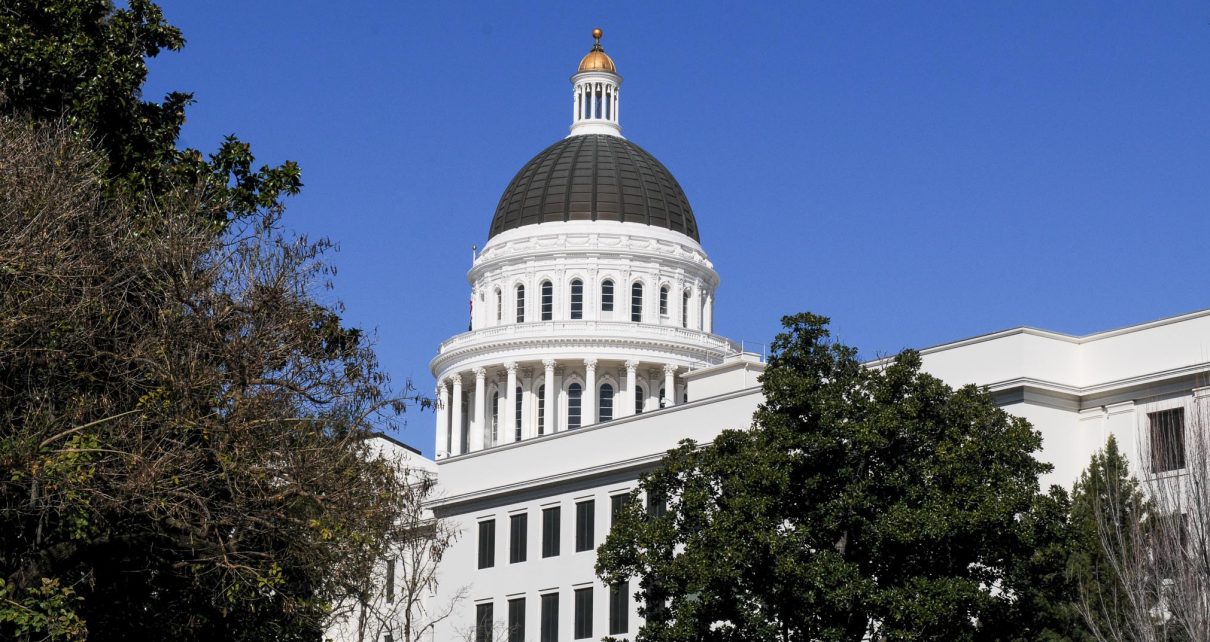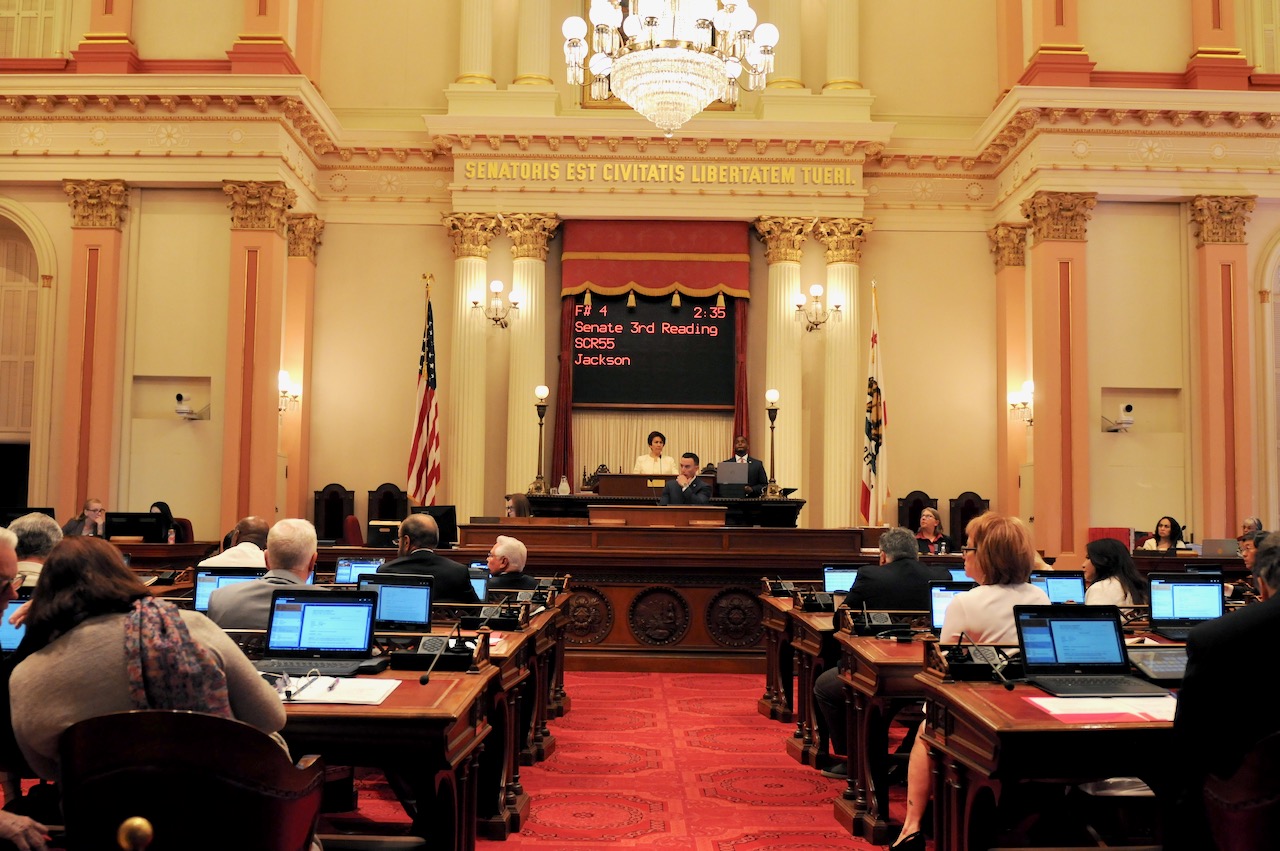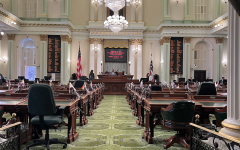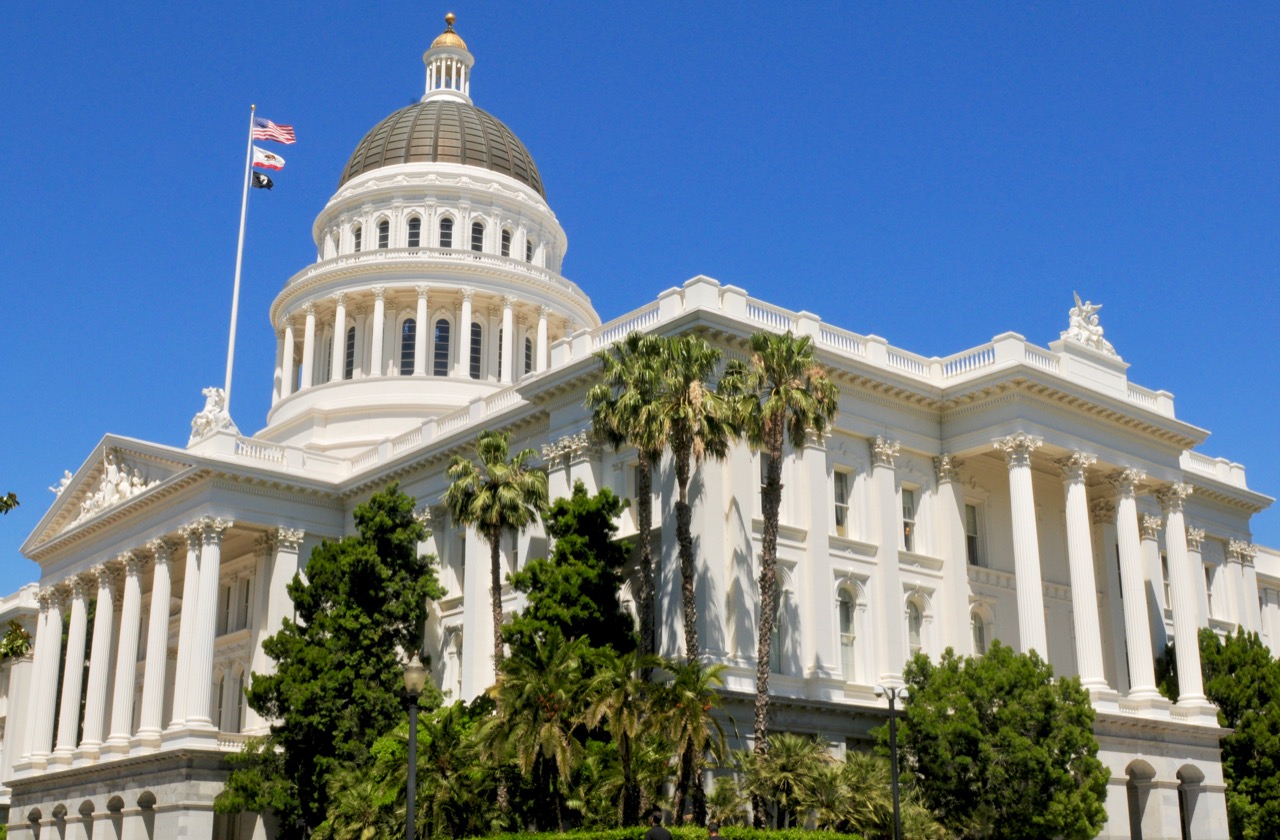
California State Capitol. (Photo: Kevin Sanders for California Globe)
Frequently Asked Questions about Other Constitutional Provisions and the Legislature
What powers does the Legislature have regarding labor relations?
By Chris Micheli, February 10, 2024 2:45 am
Most of the provisions of the California Constitution concerning the Legislature are found in Article IV, Sections 1 thru 28. Nonetheless, there are a number of provisions found in other articles of the state Constitution affecting the duties and powers of the Legislature.
What powers does the Legislature have regarding election laws? Article II authorizes the Legislature to define residence and provide registration and elections laws and must prohibit improper practices that affect elections. The Legislature also provides for recall of local officers.
What powers does the Legislative have regarding education? Article IX states that the Legislature prescribes the qualifications required for county school superintendents, as well as appointment or election of the county boards of education. Also, the Legislature has the power to provide for organizing school districts, high school districts, and community college districts, and may authorize all school districts to carry on programs and activities.
What powers does the Legislature have regarding local governments? Article XI specifies that the State is divided into counties, which are legal subdivisions of the State. The Legislature prescribes uniform procedures for county formation, consolidation and boundary changes. The Legislature provides for county powers, elected county sheriffs, district attorneys and assessors, as well as an elected governing body in each county.
In addition, the Legislature prescribes uniform procedures for city formation and provides for city powers. The Legislature provides that counties perform municipal functions at the request of cities within those counties. Also, the Legislature is prohibited from delegating to a private person or body any power to make, control, appropriate, supervise, or interfere with county or municipal corporation improvements, money, or property, or to levy taxes or assessments, or perform municipal functions. Finally, the Legislature may prescribe procedures for presentation, consideration and enforcement of claims against counties, cities, their officers, agents, or employees.
What powers does the Legislature have regarding taxation? Article XIII provides that the Legislature may provide for property taxation of all forms of tangible personal property, shares of capital stock, evidences of indebtedness, and any legal or equitable interest therein not exempt. This has to be done by a 2/3 majority vote of each house (i.e., to classify personal property for differential taxation or for exemption). The Legislature may exempt from property taxation in whole or in part a number of types of property, such as personal residences for those injured in military service, and property used for religious, hospital or charitable purposes.
In addition, the Legislature by a 2/3 majority vote may authorize county boards of supervisors to exempt real property having a full value so low that, if not exempt, the total taxes and applicable subventions on the property would amount to less than the cost of assessing and collecting them. The Legislature may define open space land and must provide that when this land is enforceably restricted to recreation, enjoyment of scenic beauty, use or conservation of natural resources, or production of food or fiber.
The Legislature may provide by law for the manner in which a person of low or moderate income who is 62 years of age or older may postpone ad valorem property taxes on the dwelling owned and occupied by him or her as his or her principal place of residence. The Legislature may provide for the assessment for taxation only on the basis of use of a single-family dwelling and so much of the land as is required for its convenient use and occupation, when the dwelling is occupied by an owner and located on land zoned exclusively for single-family dwellings or for agricultural purposes.
What powers does the Legislature have regarding labor relations? Article XIV states that the Legislature may provide for minimum wages and for the general welfare of employees and for those purposes may confer on a commission legislative, executive, and judicial powers. Also, the Legislature is expressly vested with plenary power, unlimited by any provision of this Constitution, to create and enforce a complete system of workers’ compensation by appropriate legislation.
What powers does the Legislature have regarding amending or revising the Constitution? Article XVIII provides that the Legislature by a 2/3 majority vote may propose an amendment or revision of the Constitution and, in the same manner, may amend or withdraw its proposal. Each amendment must be prepared and submitted that it can be voted on separately by the electorate. Also, the Legislature by a 2/3 majority vote may submit at a general election the question whether to call a convention to revise the Constitution.
What powers does the Legislature have regarding miscellaneous subjects? Article XX requires the Legislature to protect by law from forced sale a certain portion of the homestead and other property of all heads of families.
The Legislature cannot pass any laws permitting the leasing or alienation of any franchise, so as to relieve the franchise or property held thereunder from the liabilities of the lessor or grantor, lessee, or grantee, contracted or incurred in the operation, use, or enjoyment of such franchise, or any of its privileges.
The Legislature may authorize, subject to reasonable restrictions, the sale in retail stores of alcoholic beverages contained in the original packages, where the alcoholic beverages are not to be consumed on the premises where sold; and may provide for the issuance of all types of licenses necessary to carry on the activities.
- A Historic Look at Bill Introductions in the California Legislature - February 21, 2026
- Construction of Eminent Domain Law - February 21, 2026
- Deposition of Expert Witnesses - February 20, 2026





One thought on “Frequently Asked Questions about Other Constitutional Provisions and the Legislature”